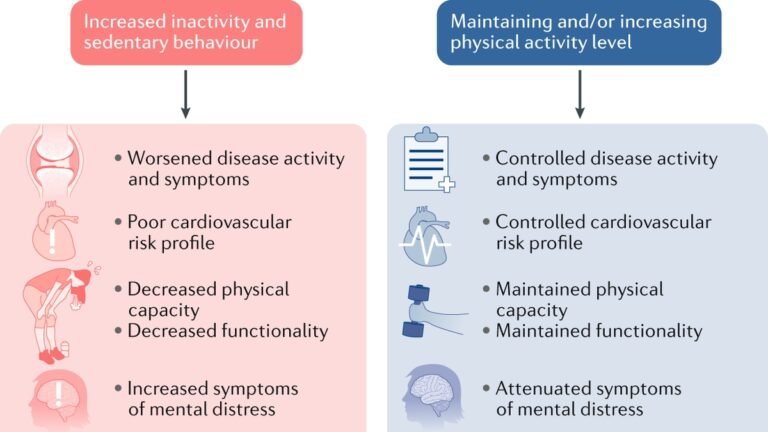Correlation between physical activity and new coronavirus infection (COVID-19)
Recent studies have revealed a significant correlation between pre-pandemic physical activity levels and the likelihood of contracting the virus, especially in older adults. The study of 61,557 adults aged 45 and older found that those who were fully active before the pandemic were 10% less likely to develop COVID-19 and 27% less likely to be hospitalized due to infection. % was found to be low.
Interestingly, this study found differences by gender in the results. While fully active women had reduced odds of infection, a similar protective effect was not observed in men. Researchers have proposed potential reasons for these findings, including enhanced immune surveillance and differences in respiratory system physiology.
Physical activity guidelines and coronavirus disease (COVID-19)
Analyzed against established physical activity guidelines, the study found that people who adhered to exercise guidelines recommended by the United States and the World Health Organization were more likely to become infected with COVID-19 and require hospitalization due to the virus. It has been found that the risk of
These findings highlight that the protective effect of physical activity is more pronounced in women. However, it is important to note that this study is observational and uses self-reported data, so it has its own limitations. Changes in health behaviors may have occurred during the pandemic that were not explained by the study.
Physical activity: the key to overall health
The study also highlighted the importance of physical activity for overall health and its potential to prevent or reduce the impact of chronic diseases. Regular exercise is associated with lower odds of coronavirus infection and hospitalization, researchers say.
Additionally, the study also aims to investigate the association between pre-pandemic physical activity and other aspects of health, such as mental health and social connectedness. This shows that physical activity is not only beneficial for physical health, but also plays an important role in mental health.
Impact of physical activity restrictions due to the new coronavirus infection
Another study conducted in Germany assessed the impact of COVID-19 restrictions on physical activity and sedentary behavior. The study found that a significant proportion of respondents reported changes in their physical activity and sedentary behavior patterns due to the restrictions. More than a third of participants who initially met WHO physical activity recommendations were no longer able to meet the guidelines, highlighting the potential lasting health risks of reduced physical activity during lockdown.
Further research required
Despite promising findings, further research is needed to understand the precise mechanisms by which physical activity influences physiological pathways and to explore broader racial and ethnic diversity. This study acknowledges limitations, including volunteer bias and informational inaccuracies in self-reported data, suggesting the need for further validation and research.
As we continue to navigate through the pandemic, it’s clear that staying physically active can be a layer of protection against the virus, especially for older adults. However, it is also a reminder that we need to continue to invest in broader research to understand how these factors affect different demographics.


